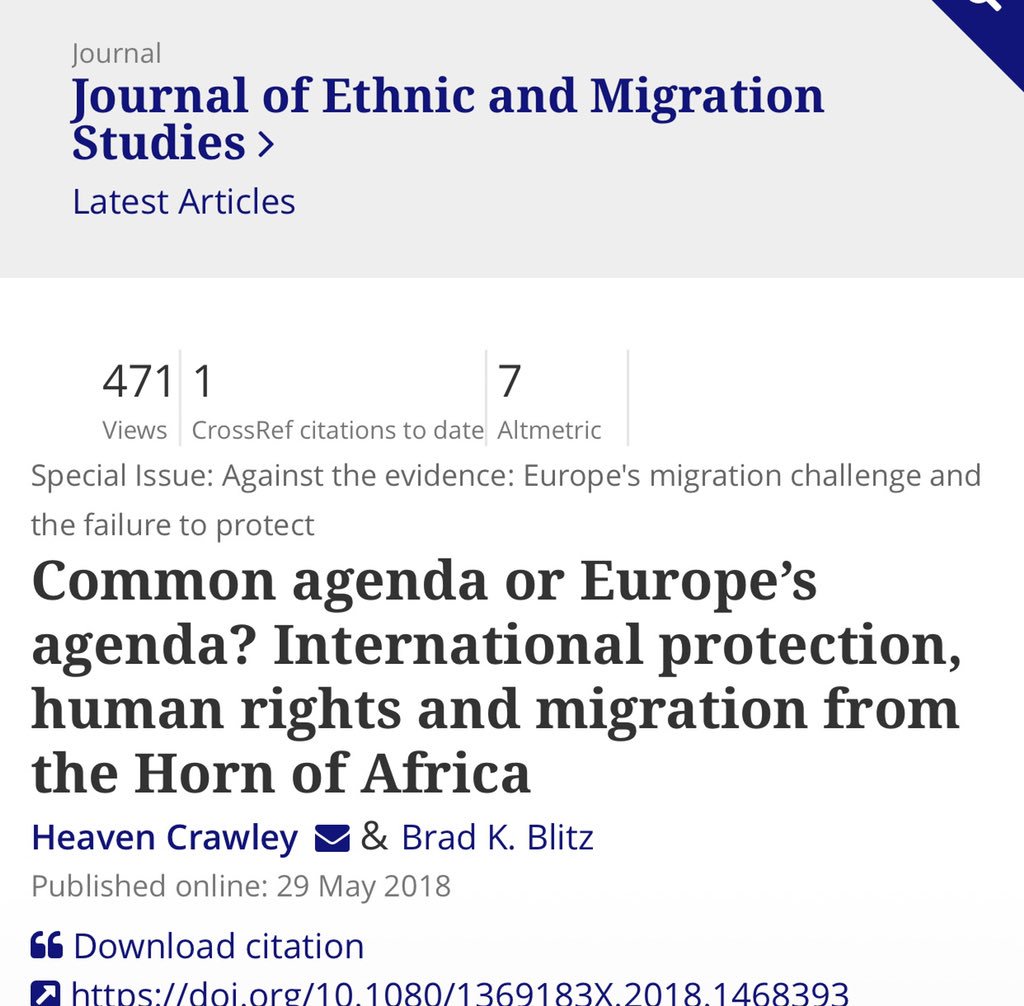
Live tweeting from #GCRFAddis symposium on #migration and #displacement unpacking roots of vulnerability in region and identifying solutions. Important to understand migration-related vulnerabilities in context of broader processes of political, economic and social change... 

Great to hear about @OSSREA research in the region and across 19 countries in Africa including through South-South partnerships. More at ossrea.net #GCRFAddis 

Helpful overview of @ICRC @ICRC_Africa work which is orientated towards translating international norms into actions. Recent focus on #migration and #displacement in context of growing politicisation of issues including through events and new publication #GCRFAddis 

Complex relationship between vulnerability, migration and displacement is a theme of this first panel at #GCRFAddis - relationships are multidimensional and intersectional (sorry, not so easy to get good photos from the panel!) 

Important to understand how ‘vulnerability’ shifts and changes over time - immediate needs but also longer term challenges associated with ensuring sustainability especially in relation to energy and water. Need to work beyond refugee communities themselves #GCRFAddis 

Who defines who is ‘vulnerable’? People themselves? Organisations? Governments? Donors? What are the vulnerabilities associated with ‘stuckness’ and the inability to move? Can rights-based approaches reduce vulnerabilities? Great questions for the panel #GCRFAddis
Important to consider structural causes of vulnerability, not only terms of policy/legislation but also in terms of how humanitarian orgs speak to vulnerability narratives in particular ways & sometimes reinforce/reproduce vulnerabilities -internationally or otherwise #GCRFAddis
Second panel of #GCRFAddis symposium and we start with an overview of mixed migration flows by @Mixed_Migration - data shows that securing access to rights/legal routes is very difficult esp once you’ve started the journey. Resonates with our @ESRC-funded #MEDMIG research 

Agree we need to think about people ‘on the move’ in different countries but note of caution from me, not panel...I’m not convinced the ‘transit country’ concept helps us address vulnerability because it assumes people are always looking to move on when many are not (and don’t)
We interviewed many Eritreans who left due to forced military conscription for @ESRC-funded #MEDMIG research. Interesting to hear more about current situation since the peace agreement was signed. Many Eritreans are not convinced anything has changed, or will #GCRFAddis
Confirmation of what we found in our #MEDMIG research and joint @scmrjems paper with @ProfessorBlitz that many Eritreans living in Sudan do not feel safe and many want to move on tandfonline.com/doi/abs/10.108… 

The closure of routes/borders in Africa, as in Europe, is increasing migrant vulnerability by pushing people onto the sea or forcing journeys to be made at night #GCRFAddis 

Excellent point from floor about importance of not over-simplifying role of ‘smugglers’/brokers and casting them as exploiters - both are engaged by migrants as part of their strategies to enhance agency/reduce vulnerability ie the journey as a co-constructed process #GCRFAddis
Starting up again at #GCRFAddis after delicious Ethiopian lunch. Focus of 3rd panel is on ways in which armed conflict and violence drives displacement. BUT people don’t just get ‘caught up’ in the violence. Civilians can be deliberately targeted i.e displacement as weapon of war
Armed conflict between Ethiopia and Eritrea resulted in mass displacement which is ongoing even though the conflict itself is over. Indeed the scale of displacement is increasing particularly for unaccompanied kids despite the official end of the war #GCRFAddis 

Focus of int community - and academics? - tends to be on ‘chaotic’ situations of ‘crisis’ rather than potential vulnerability of those living in protracted situations. Failure to address these vulnerabilities may lead people to feel they have no choice but to move on #GCRFAddis
Important to think about reasons why some violent conflicts lead to large scale displacement whilst others do not. What is it that differentiates one conflict from another? In what contexts do combatants/political leaders use displacement as weapon of war? #GCRFAddis
Displacement is increasingly internal. Fascinating panel at #GCRFAddis on ways in which IDP/refugee needs and vulnerabilities related to one another and the importance of local/civil society solutions in Somalia, Uganda and beyond 

Important to recognise that large numbers of those internally displaced in countries such as Ethiopia not classified as such - or vulnerabilities addressed. Often not fleeing violent conflict but displaced from land through ‘development’ and urbanisation initiatives #GCRFAddis
Unroll @threadreaderapp
• • •
Missing some Tweet in this thread? You can try to
force a refresh














